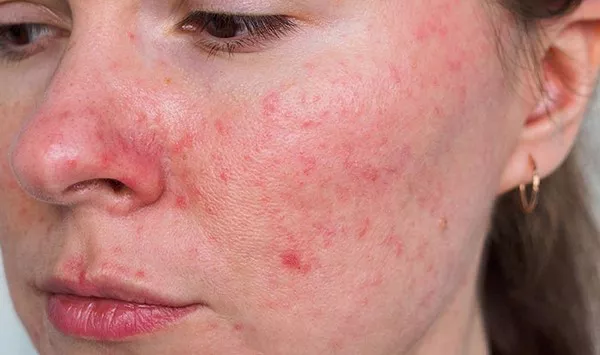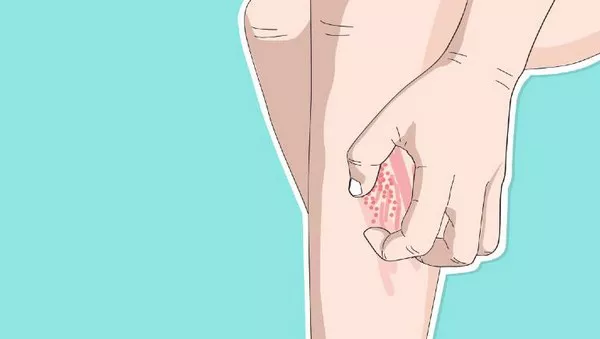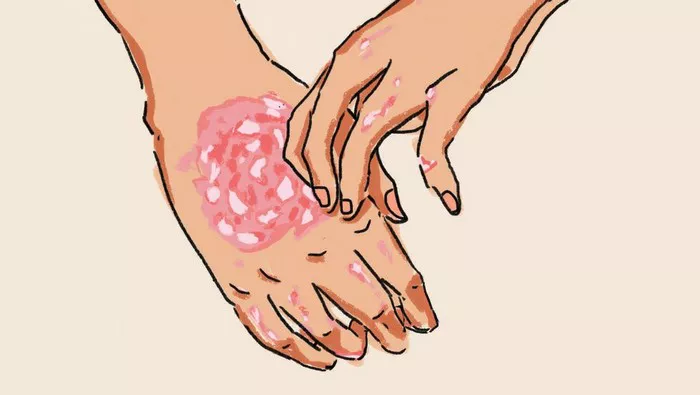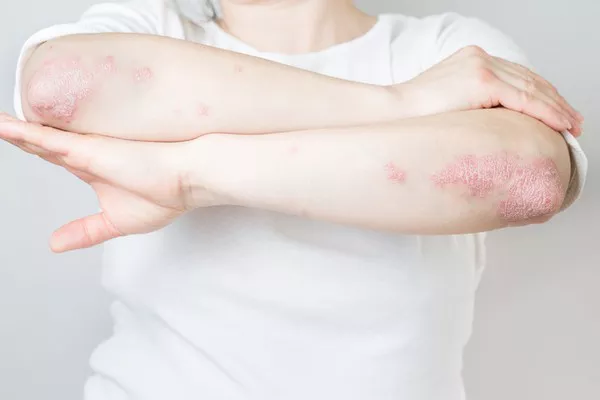Recent research has shed light on the intricate connection between stress and rosacea, a chronic inflammatory skin condition characterized by facial redness and swelling. While the precise etiology of rosacea remains elusive, mounting evidence suggests that stress can exacerbate symptoms or trigger flare-ups, creating a cyclical relationship between psychological distress and dermatological manifestations.
Experts posit that stress plays a pivotal role in the pathogenesis of rosacea by eliciting inflammatory responses within the body. This phenomenon is akin to other inflammatory diseases wherein heightened levels of cortisol, the stress hormone, can intensify symptoms such as facial swelling and burning.
Conversely, the physical appearance of rosacea, with its conspicuous facial redness and blemishes, can induce stress and anxiety in affected individuals. Addressing rosacea necessitates not only treating its physical manifestations but also attending to the mental and emotional toll it exacts.
The Bidirectional Relationship
According to the National Rosacea Society (NRS), stress and rosacea maintain a bidirectional relationship, each influencing the other. Stress can precipitate rosacea flare-ups and exacerbate symptoms, while the visible manifestations of rosacea can engender psychological distress.
A retrospective survey conducted by the NRS revealed that 69% of rosacea patients reported experiencing stress-related flare-ups at least once a month. This association is attributed to the pro-inflammatory effects of stress, which can exacerbate existing symptoms.
A 2021 study corroborated these findings, indicating that individuals with rosacea commonly experience emotional distress, including depression, anxiety, low self-esteem, and frustration. Moreover, the conscious avoidance of triggers, a common coping strategy, may paradoxically exacerbate psychological distress.
Triggers and Mechanisms
Rosacea symptoms often intensify in response to emotional stimuli, such as embarrassment, further perpetuating the stress cycle. Experts hypothesize that individuals with rosacea may exhibit underlying dysregulation of the sympathetic nervous system, which governs the body’s stress response.
While the precise etiology of rosacea remains elusive, researchers speculate that various factors, including inflammation, genetic predisposition, compromised skin barrier function, and sensitivity to mites, contribute to its development.
Apart from stress, common triggers for rosacea include sun exposure, extreme temperatures, UV light, spicy foods, and alcohol consumption.
Management Strategies
Although no cure exists for rosacea, several management strategies can ameliorate symptoms and enhance quality of life. Primary treatment modalities include identifying and avoiding triggers, adhering to a specialized skincare regimen, and diligently applying sunscreen.
According to a 2018 study, minimizing stress and sun exposure is paramount for preventing flare-ups. Additional stress-reduction techniques encompass regular exercise, adequate sleep, a balanced diet, yoga, meditation, mindfulness practices, social engagement, hobbies, self-care activities, reduced caffeine intake, and spending time in nature.
Cognitive-behavioral therapy (CBT) is recommended to mitigate stress and anxiety in individuals with rosacea, potentially ameliorating both psychological and dermatological symptoms.
Seeking Medical Intervention
In cases where symptoms persist despite conservative measures, medical intervention may be warranted. Options include oral antibiotics (e.g., doxycycline), topical antibiotics (e.g., metronidazole), and blood vessel-narrowing medications (e.g., topical brimonidine).
Individuals experiencing significant impairment in their quality of life due to rosacea should seek medical evaluation. Warning signs include persistent facial redness, visible blood vessels, papules or pustules, and ocular symptoms like watery, irritated eyes.
Conclusion
The intricate interplay between stress and rosacea underscores the importance of holistic management approaches that address both physical symptoms and psychological well-being. By implementing stress-reduction strategies and seeking appropriate medical care, individuals with rosacea can mitigate symptoms and improve their overall quality of life.
Related Topics:



























